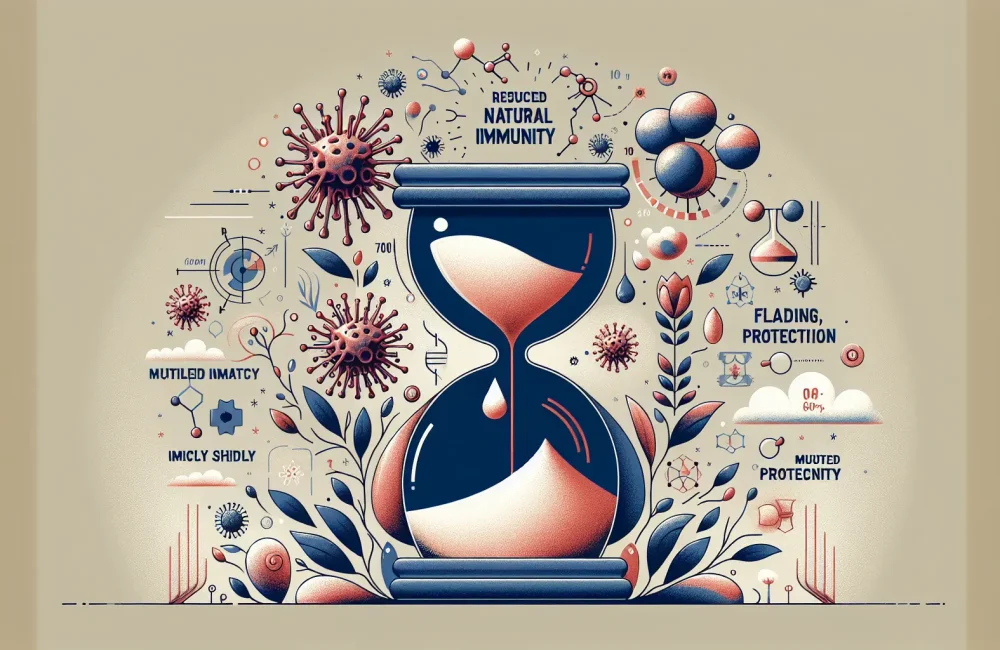By CAFMI AI From Nature Reviews Immunology
Reduced Duration of Natural Protection in the Omicron Era
The emergence of the Omicron variant of SARS-CoV-2 has significantly changed the dynamics of natural immunity acquired through infection. Prior to Omicron, infections with earlier variants of the virus typically conferred relatively durable immunity, protecting individuals against reinfection and severe illness for an extended period. However, Omicron’s arrival introduced a variant with numerous mutations, particularly in the spike protein region, which is the main target of neutralizing antibodies. These changes have led to a marked reduction in the longevity of natural immunity, as Omicron can partially evade the immune responses generated by previous infections. For clinicians, especially those in the US healthcare setting, this means that patients who have recovered from an Omicron infection may have a substantially shorter window of natural protection compared to those infected with earlier variants. Epidemiological evidence corroborates this observation, showing increased rates of reinfection with Omicron and its subvariants. Although immune protection against severe COVID-19 remains relatively strong for some months post-infection, the period during which individuals are well-protected against reinfection is notably shorter. This shift requires healthcare professionals to reconsider the timing and necessity of COVID-19 vaccinations and booster doses for patients with a history of Omicron infection, ensuring that immunity is sustained to prevent subsequent illness and transmission.
Implications for Vaccination Strategies in Omicron-Exposed Populations
Given the reduced duration of natural immunity following Omicron infection, there is an increased emphasis on timely vaccination and booster programs. Vaccines remain a key tool in extending protection beyond the limited window of natural immunity seen with Omicron. Health authorities must adapt recommendations to account for the variant’s immune escape characteristics, potentially shortening intervals between infection recovery and vaccine doses. This approach aims to mitigate reinfection risk and severe disease, especially in vulnerable populations. Clinicians need to actively assess patients’ infection histories with attention to variant type to guide personalized vaccination plans. Updated data on vaccine effectiveness against Omicron sublineages will further inform optimal scheduling and vaccine composition adjustments.
Clinical and Epidemiological Considerations for Managing Omicron Reinfections
The higher rate of reinfections with Omicron and its subvariants poses challenges for clinical management and public health surveillance. Clinicians should be aware that prior Omicron infection does not guarantee prolonged protection, necessitating continued vigilance in testing and treatment strategies. Reinfection risk underscores the importance of non-pharmaceutical interventions in high-risk settings and during surges. Epidemiological monitoring must incorporate variant-specific data to track immunity trends and reinfection patterns accurately. Public health messaging should emphasize that natural infection alone may not provide lasting immunity against Omicron, reinforcing the benefits of vaccination and boosters to maintain community protection.
Read The Original Publication Here






